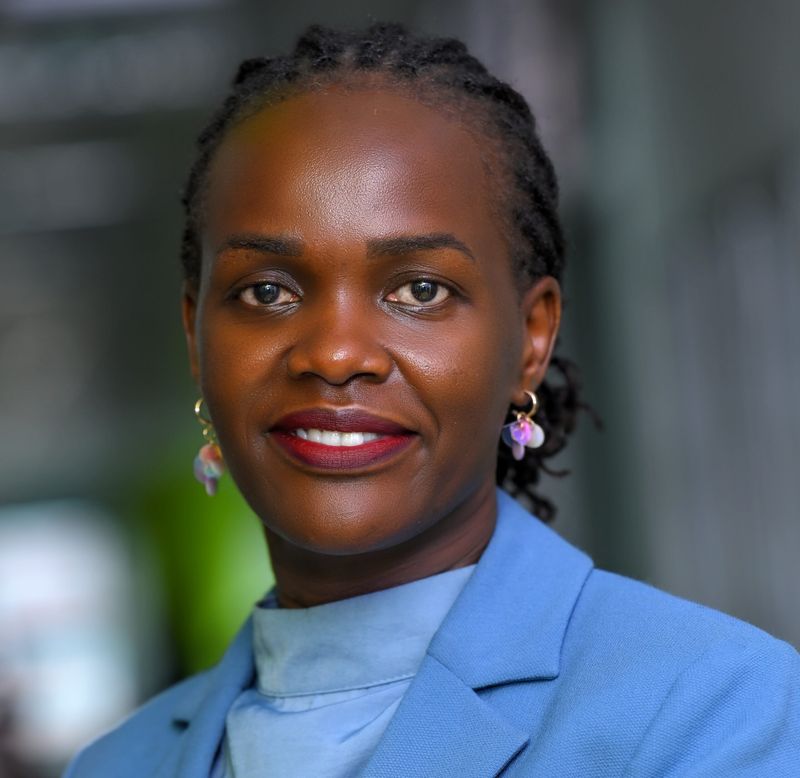
Opinions
Patricia Ojangole: Empowering women to unlock the potential that lies in the critical sectors of Uganda’s economy
Women are critical to achieving economic growth and alleviating poverty, considering they dominate a vital sector of Uganda’s economy – agriculture.
The latest census figures indicate that out of Uganda’s total population of 45.9 million, 24.3 million are female, representing 53%. Despite this demographic advantage, findings from the 2024 population census further reveal that only 31% of female-headed households own land, compared to 51% of male-headed households, underscoring the gender gap in land ownership and economic independence.
Land is a critical resource in unlocking access to finance as it acts as security for credit provided by both formal financial institutions, such as the Uganda Development Bank (UDB). Several studies have established a strong correlation between women’s economic empowerment as well as reduction of household poverty and economic dependence.
Uganda Development Bank recognizes that women’s economic empowerment is not only the right thing to do, but also a sure way to unlock the potential that lies in Uganda’s critical sectors of the economy. For example, in 2024, the bulk of the projects approved by UDB were in primary agriculture (45 projects), representing 26% of the total projects approved. Note that women account for about 77% of the agricultural labour force, and agriculture accounts for 24% of the country’s GDP, and about 40% of Uganda’s export earnings.
A country that expands women’s economic opportunities and their ability to make decisions about these opportunities is better positioned to achieve better education and health outcomes for its children.
It is from this premise that in 2021, UDB launched its Special Programs product, a targeted intervention for Women among other segments such as youths and SMEs that have traditionally left out of the money economy.
The Women Prosper Loans help women realize both short-term (18 months) and long-term (8 years) needs, ranging from working capital, business expansion and asset financing. UDB extends credit between UGX100m and UGX900m to enterprises where ownership/shareholding is more than 50% by women, the board is constituted of at least 30% women, and senior management constitutes at least 30% women.
Women operating SMEs are also eligible for UDB’s SME Kazi Loans which provides loans of as low as UGX50M for 1 to 6 years. These loans oscillate between an interest rate of 10% to 12% per annum.
Beyond the segmented interventions, women have benefited, either as business owners or as employees, from the impact created through UDB’s mainstream programs.
Creation and maintenance of gainful employment is a key development indicator for UDB as it is considered a catalyst for socioeconomic development by reducing unemployment and enhancing social wellbeing. Out of the 51,841 jobs that were created and maintained through projects supported by UDB in 2023, 27% went to women. Additionally, 39% of women were among shareholders of the bank-supported projects. Furthermore, women had a 31% representation on the board and a 43% representation on the senior management teams.
Even more importantly, overall, 22% of the enterprises were women-owned, given that more than 50% of shares are held by women.
On the non-financial front, UDB has entered strategic partnerships, under the Bank’s Business Accelerator for Successful Entrepreneurship (BASE) initiative, that look to further bridge the gaps that exist in women’s access to both finance and best practices in business management. In this regard, in 2024, a total of 30 projects were supported under partnerships with Uganda Women Entrepreneurs’ Association Limited (UWEAL) and Chemonics-SIA for funding women and SMEs, respectively.
In the same year, 12 cooperatives were supported. A significant number of women across the country who are involved in primary agriculture subscribe to farmer cooperatives and associations through which they can access inputs, market access, tools for value addition as well as affordable credit. Today, there are about 45,000 Cooperatives with 18 million members.
Through the BASE Unit, UDB has provided business advisory services aimed at supporting such cooperatives with capacity building and technical support in areas such as management best practices, good governance, financial management, debt and risk management, business planning and strategic management, human resource management, and market planning, among others.
More importantly, UDB has extended credit facilities to these farmer groups to farmer to serve as working capital (such as inputs, storage, crop finance), or to help them acquire otherwise capital-intensive machinery necessary for value addition.
During the numerous engagements the bank has had with these cooperatives, women have attested to the benefits they have derived from UDB programs, which have empowered them economically. Among these benefits is knowledge of financial discipline, which has inculcated a saving culture. Members have formed smaller savings groups, which have empowered women to be financially independent. They borrow this money at an interest rate of 5% far lower than commercial banks and moneylenders.
Access to such opportunities that have increased their savings and boosted their productivity has enabled women to acquire some assets, such as pieces of land, educate their children, and find a market for their produce with ease. This has not only improved the quality of their lives and transformed household incomes, but it has also contributed to Uganda’s economic growth through improved tax revenue and job creation.
As we celebrate this Women’s Month, we must be cognisant that tapping into women’s potential is essential if the country is to realize a more inclusive and sustainable growth that is not just metric but encompasses human development.
The Author is the Managing Director of Uganda Development Bank.














Guest Writer
Leave a Comment
Your email address will not be published.